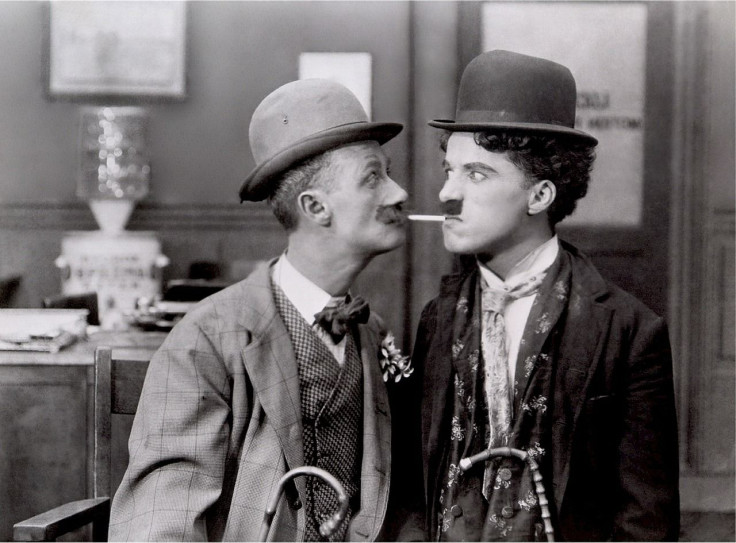Pun Intended: Sense Of Humor Is A Reaction To Unexpectedness And Entropy, Says Study

Science is perhaps the last thing on many people’s minds when they think of humor. With all its mathematical certainty and methodical research, it can easily seem too cold to explain why something is funny. Though it may be difficult to articulate exactly why some things are funny and some aren’t, we all seem to have a personal taste for what’s humorous. A new study out of the University of Alberta challenges this assumption — researchers experimented with words to explore the relationship between entropy and humor, and the idea that humor might be used as a message-sending device among humans.
Background: The Snunkoople Effect
There is very little experimental research on humor, but University of Alberta psychology professor Chris Westbury was struck with the idea for his study from research on aphasia. One experiment had subjects review letter strings and determine whether the words formed were real or not. Westbury noticed a trend: participants would laugh when presented with some of the made-up words, like snunkoople. It made him wonder, how can a made-up word, with no meaning or association, be inherently funny?
Westbury hypothesized that the reason lay in the word’s entropy, a mathematical measurement of how orderly or predictable it is. The measurement is a gradual decline into disorder — the lower a word’s entropy, the more random it is. Some made up words (finglam) have lower entropy than other made-up words like clester, which has a more probable combination of letters.
Westbury said that Dr. Seuss, who is famous for creating funny nonwords, created words that were low in entropy. “He was intuitively making lower-entropy words when he was making his nonwords,” Westbury explained in a press release. “It essentially comes down to the probability of individual letters. So if you look at a Seuss word like yuzz-a-ma-tuzz and calculate its entropy, you would find it is a low-entropy word because it has improbable letters like ‘Z.’”
Westbury, inspired by the reactions he observed in the aphasia experiment, set out to determine if it was possible to determine the humorousness of words using entropy as a measurement. The study had subjects compare two nonwords and pick the option they found funnier. In a second part of the study, they were shown a single nonword and asked to rate how humorous they found it on a scale of 1 to 100.
The results supported Westbury’s hypothesis.
“The bigger the difference in the entropy between the two words, the more likely the subjects were to choose the way we expected them to,” Westbury said, adding that the most accurate subject chose correctly 92 percent of the time. “To be able to predict with that level of accuracy is amazing. You hardly ever get that in psychology.”
Great Expectations
The idea of entropy as a predictor of humor is not new. The 19th Century German philosopher Arthur Schopenhauer proposed humor is a result of a violated expectation, challenging the previously held theory that humor was based on improbability alone.
When it comes to nonwords, our expectations are phonological, meaning that we expect them to be pronounced a certain way. Puns, as another example, come with semantic expectations.
“One reason puns are funny is that they violate our expectation that a word has one meaning,” Westbury said. He used one joke as an example: “Why did the golfer wear two sets of pants? Because he got a hole in one. “When you hear the golfer joke, you laugh because you’ve done something unexpected — you expect the phrase ‘hole in one’ to mean something different, and that expectation has been violated.”
The same humor could be applied to the nonwords — we expect certain combinations of letters and sounds, but novel ones can lead to humorous reactions. Westbury, though he concedes funny words are not the pinnacle of comedy, is interested in pursuing his research for commercial applications like product naming.
“I would be interested in looking at the relationship between product names and the seriousness of the product,” he said. “For example, people might be averse to buying a funny-named medication for a serious illness — or it could go the other way around.”
Looking Forward
Finding a measurable way to predict humor is just the beginning for research on what we find funny. Apart from words and language, there are many past theories about humor waiting to be confirmed.
“We think of humor as personal, but evolutionary psychologists have talked about humor as being a message-sending device,” Westbury said. “So if you laugh, you let someone else know that something is not dangerous.”
He explained that a person might laugh after discovering a suspected intruder in their yard was only a cat, signaling to others that the threat you suspected didn’t end up being dangerous at all — something Westbury calls “adaptive.”
The search for what humor really is isn’t likely to end anytime soon, though, due to the complexity of the subject. “Humor is not just one thing,” Westbury explained. “Once you start thinking about it in terms of probability, then you start to understand how we find so many things funny. And the many ways in which things can be funny.”
Source: Westbury C, Shaoul C, Moroschan G, Ramscar M. Telling the world’s least funny jokes: On the quantification of humor as entropy. Journal of Memory and Language. 2016.



























